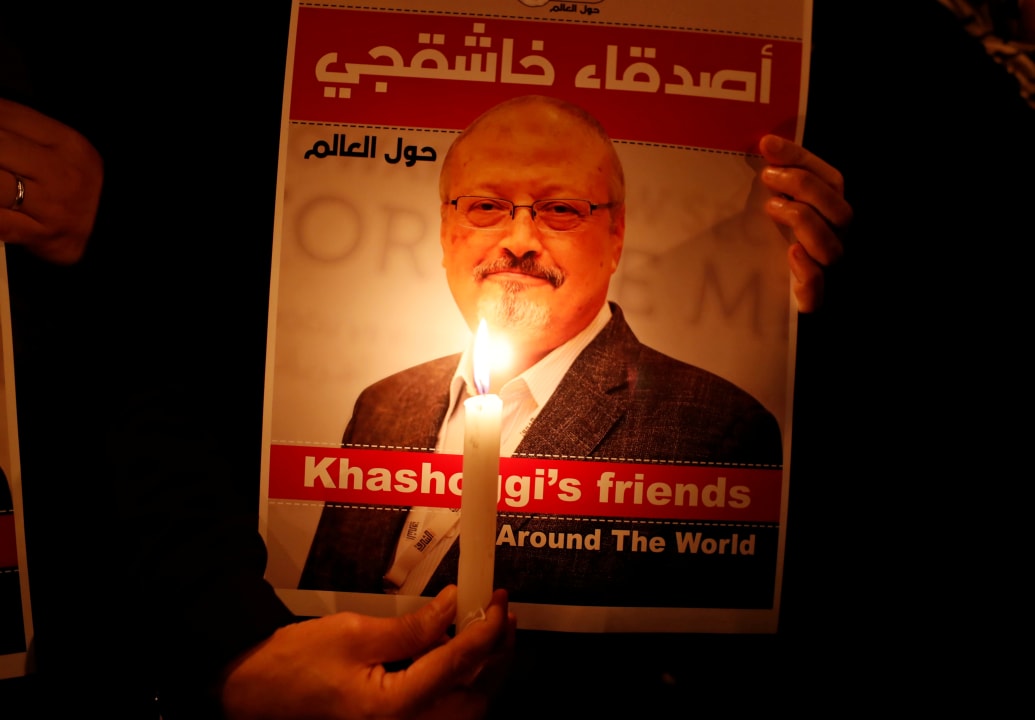Is the US status as the world’s cultural superpower at risk?
For decades, since the rise of Hollywood coincided with America’s rise on the world stage, the United States has used new waves of creativity and technological innovation to make a greater impact than ever before in connection with our cultural production. This has led even our enemies to become more like us, to embrace our values and ideals, to see us as a unique source of imagination and ideas for the entire planet.
They listened to our music, jazz and rock and roll. They dressed like the stars they had seen in movies or television shows. Hundreds of millions gathered around the radio and television to watch Muhammad Ali or the Academy Awards.
But as we watch one of our major sports ventures soon be taken over by a foreign power, young people from the US and around the world connect and watch the planet on a Chinese-made platform like TikTok, and the streaming of television content is increasing. Coming to homes around the world, including the US, not from Hollywood but from producers in Asia, Europe, and Latin America, we have to ask, are we watching the era of US cultural dominance come to an end? And if we are, what does that mean for the US?
Culture is often despised and does not receive serious attention in US foreign policy circles. More than three decades ago, Harvard’s Joe Nye, a brilliant international relations scholar, coined a term that has since been used to refer to forms of national influence that have been devoid of force and coercion. He called it “soft power”. While the concept, which also pertains to economic and other national-to-national forms of leverage, is worthy of study as he suggests, calling anything “soft” in the Blob’s macho wannabe world is not highly regarded.
But to classify cultural influence as a lesser form of power is a big mistake. This is obvious because it is not a mistake made by other nations. From time immemorial, one of the first goals of the warring powers was to defame the culture of their enemies and to rally around their own shared beliefs, values, customs and experiences. The primary goal in war has been to destroy cultural icons, national symbols, works of art or buildings or flags or heritage sites that foster a sense of identity and perhaps even the patriotic impulse of a targeted nation.
There are many examples in the world today. Putin argued that Ukraine is not really a nation, that it does not have a history of its own. He tried to redefine the conquered people as Russians. He defamed the Ukrainian language, destroyed landmarks. Just as the country kidnaps Ukrainian children to deny its future, it shatters its cultural fabric to deny its past, erase fathers, mothers and other ancestors. The Taliban did this to non-Muslim icons in Afghanistan when they came to power. ISIS did the same. They tried to impose their culture.
Hitler did this to the Jews. European missionaries did this colony after colony. We do this only in our history books, which tell the stories of the conquerors and childish or belittle the conquered. Even today, there are movements in our national culture wars such as banning books, banning “dangerous” stories, erasing history, defaming cultural diversity, wrong clothes, wrong religious beliefs.
Climate activists dressed as characters inspired by the Netflix series “Squid Game” protest outside the venue of the UN Climate Change Conference (COP26) held in Glasgow, Scotland on November 10, 2021 as they ask Samsung to switch to 100% renewable energy.
REUTERS/Dylan Martinez
Other countries realized the power of culture and made cultural diplomacy the center of their international policies. China achieved this with the Belt and Road initiative, which has a huge cultural element. But so is South Korea, which has a national strategy to promote K-pop and Korean movies or television shows. Interference with Squid Game.
One tactic that many find useful in this regard is what we sometimes call a sports wash. As with other cultural initiatives, the goal is to reach people in terms of how they feel, not through political debate or their government. Sport, like the creative arts, is a powerful way to touch and connect with a foreign audience. For decades, countries have tried to do this by hosting the Olympics. Again, the Nazis did it. The Soviets did this. China made. Qatar did just that by hosting the last World Cup, just as Russia did before them. Other Gulf countries have achieved this by buying football teams or hiring football players on big contracts, hosting Formula 1 grand prix or tennis tournaments.
With the burgeoning LIV round of golf and the merger of the venerable US-based Professional Golfers Association (PGA), there’s no doubt that Saudi Arabia is trying to connect directly with millions of influential Americans, Europeans and Asians. a passion for them, an element of their life that is a source of joy and meaning. By doing so, they hope to reshape their country’s image, to make people forget 9/11, the murder of Jamal Khashoggi, or its horrific human rights record. (Note: The merger still needs to be approved by the PGA board of directors.)

A demonstrator holds a poster with a picture of Saudi journalist Jamal Khashoggi outside the Saudi Arabian consulate in Istanbul, 25 October 2018.
REUTERS/Osman Orsal/File Photo
While initial reactions to the merger contain some anger, the Saudis expect it to go away completely. They expect this because that’s how it usually happens. Fans are immersed in the competition and react with their emotions towards the sport, which often stays away from politics in their minds. We know this from our experience.
For other countries such as South Korea or Mexico, for example, that have dominated the best director category at the Oscars in recent years, cultural validity is a way not only to impress, but also to validate, to build national pride. the interests of the politicians in power and their benefactors. It creates awareness that guides tourism and trade. It builds bonds that strengthen alliances and therefore even has national security ramifications.
In the past, America recognized this and responded with attempts at cultural diplomacy. Most were on a limited scale, but still noteworthy, like the jazz diplomacy of the Cold War era or the ping pong diplomacy with the Chinese as our two societies opened up to each other.
But for the most part, we haven’t invested heavily in government programs in this area because Hollywood, Madison Avenue, Motown, Nashville, our universities, our symphonies, our broadcasters, the NBA, and lately Silicon Valley were doing the heavy lifting. As a matter of fact, we continue to gain victories in this area. With Lionel Messi joining the Inter Miami major league soccer team, millions of foreign eyes will be drawn to the United States. But we must ask, is our influence diminishing in significant ways?
However, as noted above, other countries have taken the initiative. LIV’s effective takeover of the PGA is just one example of what came at the expense of US influence. Tik Tok is another. It exists in 150 countries. It has more than 1 billion monthly users. It is the most popular application in the world. The average user spends more than 1.5 hours a day on Tik Tok. And that is to say nothing about the benefit that Tik Tok derives from its access to data about users.
Squid Game With over 1.65 million downloads, it is the most watched series in Netflix history. It also has two seasons of excellent Spanish dramas on Netflix’s top ten list of all time. Money Robbery. What are the most watched YouTube videos of all time? Number one is “Baby Shark Dance” from South Korea with 12.85 billion views. Number two is “Despacito” in Spanish, which is a US but worldwide hit. South Korean Gangnam Style is number 11 with nearly five billion views. There are also more Asian and South Asian children’s songs on the list.

Super Bowl LVII – Kansas City Chiefs – Philadelphia Eagles – State Farm Stadium, Glendale, Arizona, United States – February 12, 2023.
REUTERS/Brendan Mcdermid”
On the list of the world’s best sporting events, you’d have to land at number 9 to reach the Super Bowl, which has only a tiny fraction of the impact of real big draws like the Tour de France with 112 million viewers. 3.5 billion, Men’s Football World Cup 3.3 billion, Cricket World Cup 2.6 billion, Summer Olympics 2 billion, Winter Olympics 1.12 billion (ten times more than Super Bowl) and so on.
Future technological innovations will enable more and more creators around the world to reach global audiences. The United States no longer has an inside track, as it did when the film, music, and TV distribution infrastructure was so dominant. Moreover, cultural battlefields will become more competitive as other countries actively compete for a share of global hearts and minds – whether for sporting purposes, ideological reasons or purely commercial reasons.
“If we are to have a chance to continue to lead on the global stage, we will also need to stop fighting our own internal culture wars.”
The US can shrug it off and remain indifferent, hoping that there will always be an audience for reruns of Seinfeld. But while other states, including our primary rivals China, staunch enemies like Russia, Iran, and other extremists are finding new ways to use technology to advance their goals and filter out the cultural message they deem dangerous, the truth is that the United States determines how much of our decades of global leadership depends on the size of our military or We need to understand that it is more about cultural factors than budget. If we are to have a chance to continue to lead on the global stage, we will also need to stop fighting our own internal culture wars.
To be honest, I had to open my eyes to this fact, having been in the world of national security and foreign policy for the past three decades. Fortunately for me, my wonderful wife, Carla Dirlikov Canales, who has served as the cultural ambassador for the US State Department for nearly 20 years and also has a career as an internationally renowned opera singer, has become one of the world’s leading cultural experts. diplomacy.
He has conducted programs at Harvard, the Fletcher School, and other leading universities on the role of culture as a force in international relations and driving social change. She is also currently working on cultural change issues with the Biden Administration at the National Endowment for the Arts.
Carla was an excellent teacher in these subjects and her message was consistently that we can and should do more. As he wrote, we are at a disadvantage as the only major nation without a ministry of culture. There is a long overdue fix. Recent events and trends have only further confirmed that he was right. If we want to maintain our leadership in the world, as he regularly advocates to me, his students and colleagues, “we must learn to reach not just governments, but people around the world, not just through the talking points of diplomats or speeches by politicians, but also people around the world. thanks to the work of others who know how to touch it deeply.”
Other nations understand this. We have long underestimated our authority in this matter. The question now is whether we will step up to the challenge of developing this vital force field as we do others that we consider essential to our leadership and security.